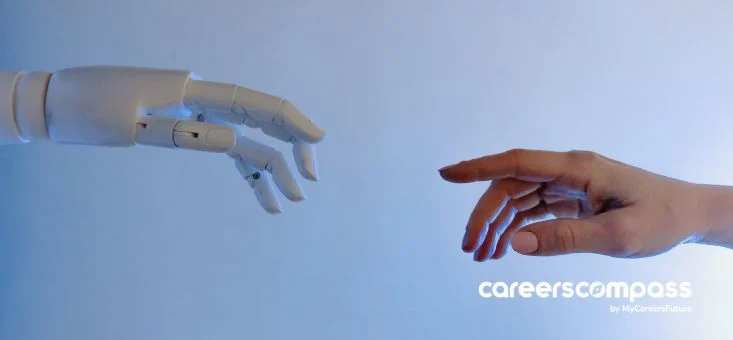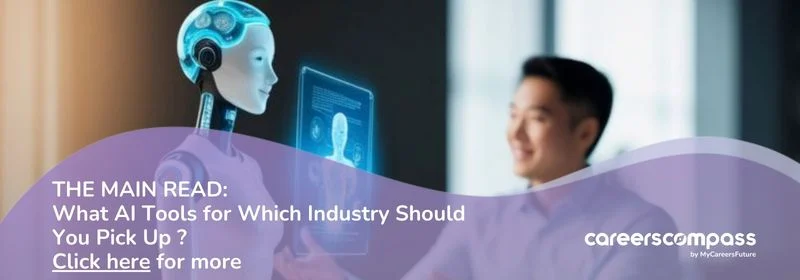In the ever-evolving landscape of the twenty-first century, the possibility of our jobs being replaced by automation looms large. However, there’s no need for despair. In her book Career Fear (and how to beat it), author Somi Arian provides a guide to overcoming the challenges posed by the rapid pace of technological advancements.
Technological disruption propels evolution at work, demanding adaptability and resilience from professionals
The relentless force of technological disruption drives the evolution of work, often leaving professionals struggling to adapt. The increasing processing power of computers sees once-human tasks automated at breakneck speed, threatening the future of many popular career paths. For instance, the emergence of self-driving vehicles raises questions about the longevity of careers in transportation.
The key to staying steadfast is to develop a resilient mindset and to remain adaptable to changing conditions. Jobs may evolve, and processes may change, but there will always be a need for human involvement.
Cultivating emotional intelligence and empathy empowers you to excel in the digital age, where human qualities are vital
In today’s technologically driven world, the importance of human qualities such as emotional intelligence and empathy is increasing daily. These traits set us apart from machines and help us form meaningful connections with others.
To improve our emotional intelligence, we need to take steps to understand ourselves, understand others, and take action using these insights.
Understanding ourselves involves being aware of our emotions, strengths, and limitations. It requires us to step back, reflect on our experiences, and identify patterns in our behaviours and emotions. With this, we will be able to manage our emotions more effectively and make better decisions.
Again, empathy plays a crucial role in understanding others, enabling us to put ourselves in other people’s shoes and see things from their perspective. This ability allows us to build stronger relationships, communicate more effectively, and resolve conflicts more efficiently.
Finally, taking action involves applying what we have learned about ourselves and others to make positive changes in our lives. This step requires us to take responsibility for our actions and commit to personal growth and development. By doing so, we can improve our emotional intelligence, strengthen our relationships, and become more effective leaders.
Embracing creativity and flexibility is crucial for navigating the uncertain future of work
The future of work is uncertain, and it is becoming increasingly clear that cultivating creativity and flexibility will be essential to adapt to the changing landscape.
One of the most significant challenges in the future of work is effectively and managing time. Automation and AI is reshaping our relationship with time, and we need to find innovative ways to utilise it effectively. Workers will need to be proactive in developing time-management strategies that allow them to accomplish their goals efficiently while adapting to the changing nature of work.
Another key concept to consider is transition. As the future of work remains uncertain, workers must be prepared to navigate various transitions, whether it involves shifts in job roles, industries, or even careers. Embracing contextual creativity, where we improvise and adapt to new situations using a combination of knowledge and instincts, can help workers manage these transitions successfully.
Learning new skills and disciplines is another important aspect of adapting to the future of work. As new technologies and industries emerge, workers must develop new competencies to remain relevant in the job market. By investing in ongoing learning and upskilling, workers can stay ahead of the curve and adapt to new work environments as they emerge.
Finally, embracing the rise of machines in the workplace is essential. As automation and AI transform work, workers who can effectively collaborate with machines will have a competitive advantage. Therefore, workers should focus on developing complementary skills that enable them to work alongside machines rather than against them.
Embrace the right work culture, cultivate mindfulness, and continuously develop uniquely human skills to navigate the future of work confidently
Developing uniquely human skills like emotional intelligence, empathy, adaptability, and contextual creativity is crucial, as machines currently cannot replicate these qualities. To thrive in the future of work, developing the right perspective, mindset, and skills is crucial. This involves cultivating a growth mindset, remaining agile and adaptable, and embracing lifelong learning. In addition, continuously developing and refining your skills will enable you to stay relevant and valuable in an ever-evolving job market.
One effective strategy to foster personal and professional growth is practising mindfulness daily. Engaging in mindfulness activities, such as going for a quiet, technology-free walk and focusing on the sensation of your footsteps, can significantly enhance your emotional intelligence and overall well-being. In addition, by committing to a regular mindfulness practice, you will sharpen your ability to remain fully present and attentive, which, in turn, will improve your focus, decision-making, and resilience in the face of challenges.
It is also essential to consider the ethical, philosophical, and humanistic implications of artificial intelligence and its pervasive influence on our lives. By engaging in thoughtful discussions and staying informed about these issues, you can contribute to shaping the policies and practices that will define the future of work.
The key to overcoming career fear and future-proofing your work life lies in a combination of self-awareness, adaptability, and continuous learning. We need to commit to cultivating the perspective, mindset, and skills needed to navigate the increasingly complex landscape of work in the twenty-first century. By proactively adapting to technological disruption, developing uniquely human skills, and practising mindfulness, you can confidently face the future of work and chart a fulfilling career path in a rapidly changing world.
This article is in collaboration with NexPage, a translated book summary app.
















